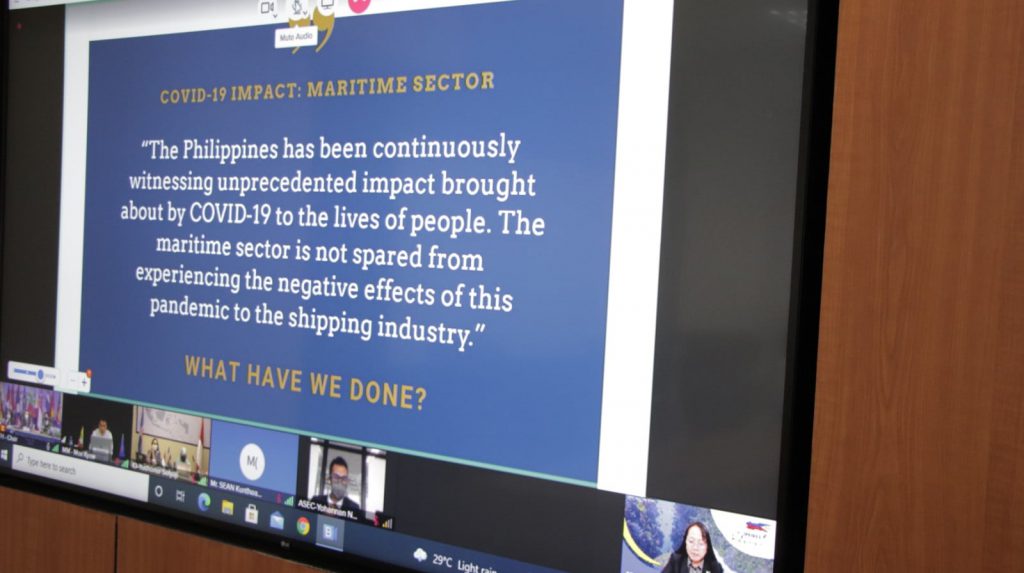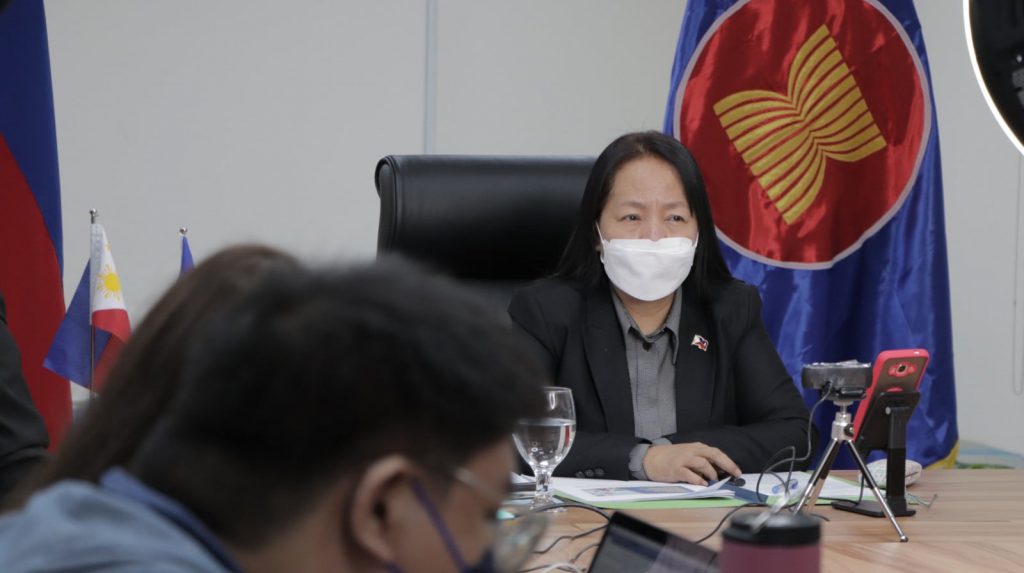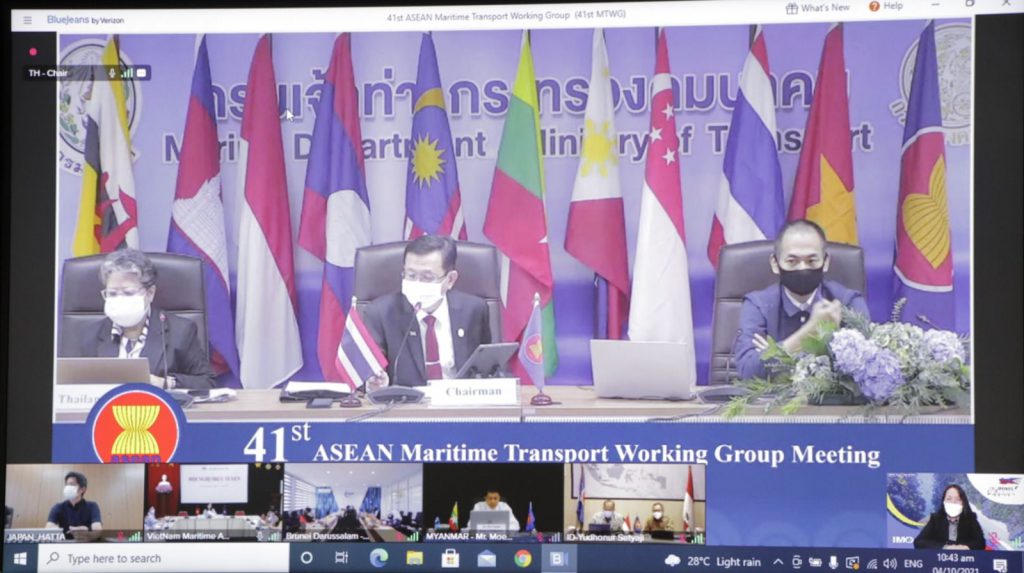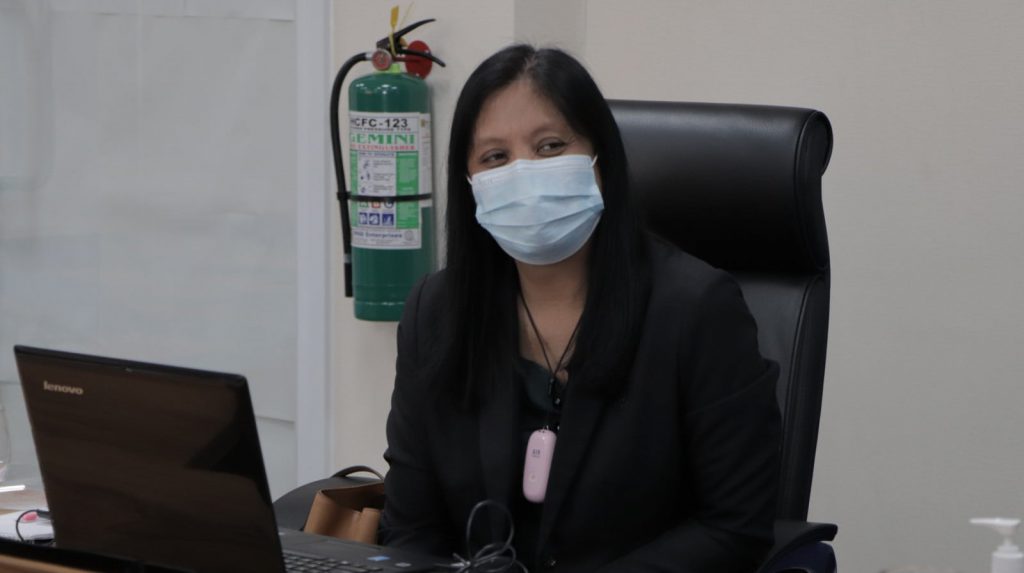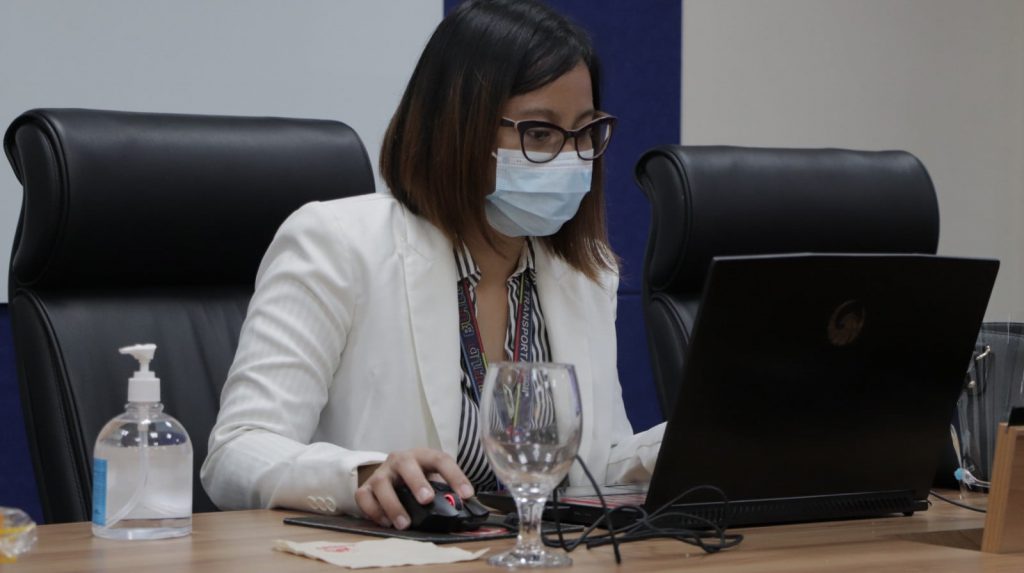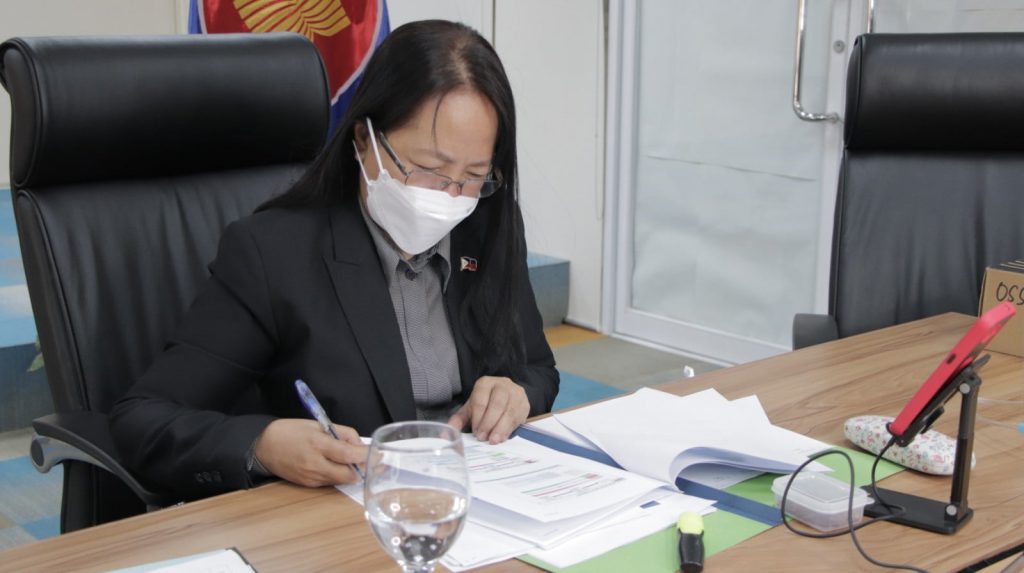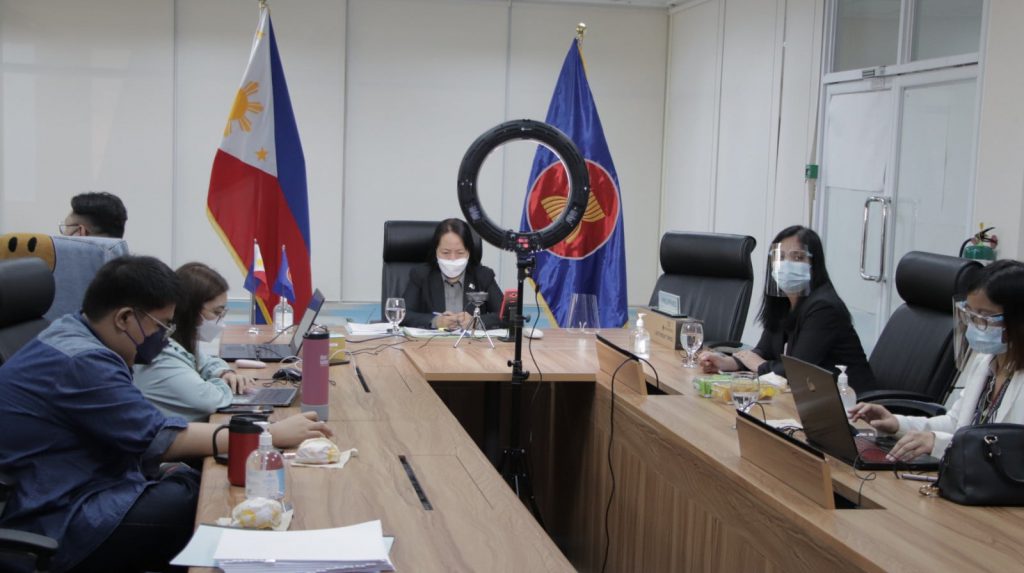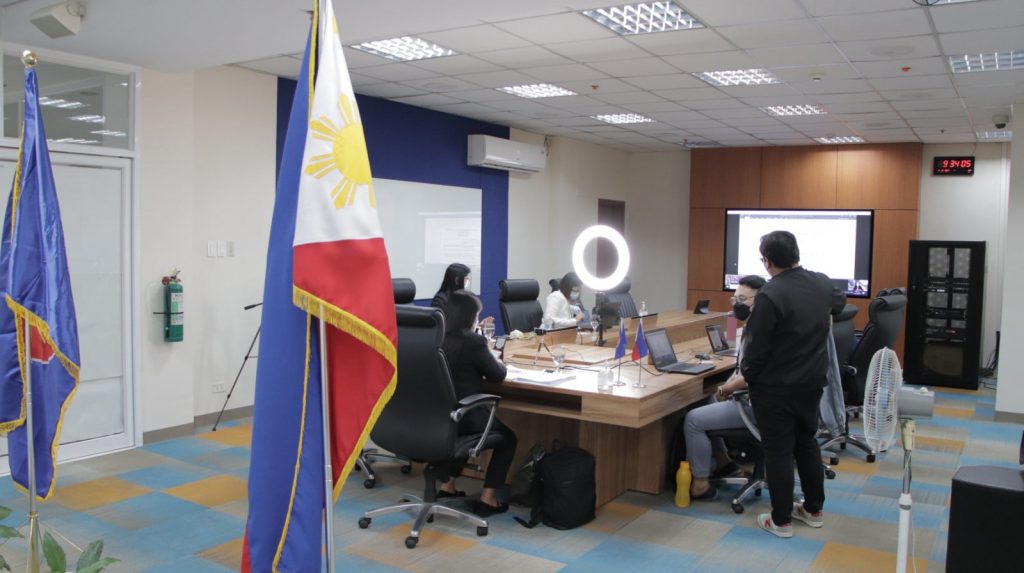As the COVID-19 pandemic continuously affect the economies of the world, including the maritime sector, the Philippines, together with the Member States of the Association of Southeast Asian Nations (ASEAN), exchanged best practices during this challenging time at the 41st ASEAN Maritime Transport Working Group (MTWG) Meeting held on 04 October 2021 via video conferencing.
The Philippine Delegation, headed by the Maritime Industry Authority (MARINA) Overseas Shipping Service Officer-In-Charge, Ms. Precila C. Jara, shared the country’s best practices in ensuring continuity of port terminal operations and facilitation of crew change as well as repatriation of seafarers, in response to the health crisis brought by the COVID-19 pandemic.
The Philippines presented its regulatory interventions for the continuity of port operations which include staggered payment of rental fees, extension of validity of permits/approvals, extension of rental and concession fee payments, provision of cargo space for produce, food and discount on shipping rates for agricultural and food products, collection of ship-generated wastes from cruise and passenger ships, management of backlog of cargo/container build-up in ports, facilitation of permits even during Enhanced Community Quarantine (ECQ), unhampered movement of cargoes within, to and from the entire Luzon, and the movement of accompanying crew of personnel of transiting cargoes.
Moreover, the Philippines also reported the country’s human and social interventions including full support to the Hatid-Tulong Program, Balik-Probinsya Program for returning seafarers, Overseas Filipino Workers (OFWs) and Locally Stranded Individuals (LSI), Balik-Probinsya Program for the employees of the Philippine Ports Authority (PPA), Hatid-Estudyante Para Makabalik sa Probinsya Program, prevention, control and mitigation of the spread of the coronavirus in PPA offices and facilities, conversion of passenger ships into temporary quarantine facility for returning seafarers and OFWs, conversion of port facility into a medical facility, and launching of Emergency Operations Center (EOC).
In terms of information and communications technology (ICT) and machinery interventions, the Philippines shared about the digitized health declaration and entry protocol forms for all PPA personnel nationwide as well as the launching of E-Payment Portal (EPP) for port-related charges. Further, the Philippine delegation likewise informed the group about the Automated Passenger Ticketing System, deployment of ambulance at COVID-19 quarantine facility located at the Manila South Harbor and the “Palamigan ng Bayan” which is a refrigerated container van/storage facility intended to help the agriculture sector to preserve the quality of their farm produce and gain better market access.
Aside from ensuring the seamless operations of ports, the Philippines also recognized the critical and vital role of the Filipino seafarers during the pandemic as the country implemented several initiatives and guidelines that will facilitate their employment while prioritizing their health and safety.
Moreover, the Philippines also issued the necessary protocol which covers the detailed procedures as well as the health and safety protocols for repatriation. It also includes the conduct of crew change, both in domestic and international ports. The said protocol helped facilitate the speedy and safe travels of seafarers, including their disembarkation and crew change during the pandemic.
Lastly, the country reiterated in the said meeting the six (6) ports that have been designated as international maritime hub and gateway ports for crew change operations. These include the Port of Manila, Port of Cebu, Port of Batangas, Port of Subic, Port of Bataan, and the Davao Sasa Port.
The Philippine delegation concluded the 41st ASEAN MTWG Meeting through the manifestation of support for its candidature to the International Maritime Organization (IMO) Council under Category C for the 2022 to 2023 Biennium.
